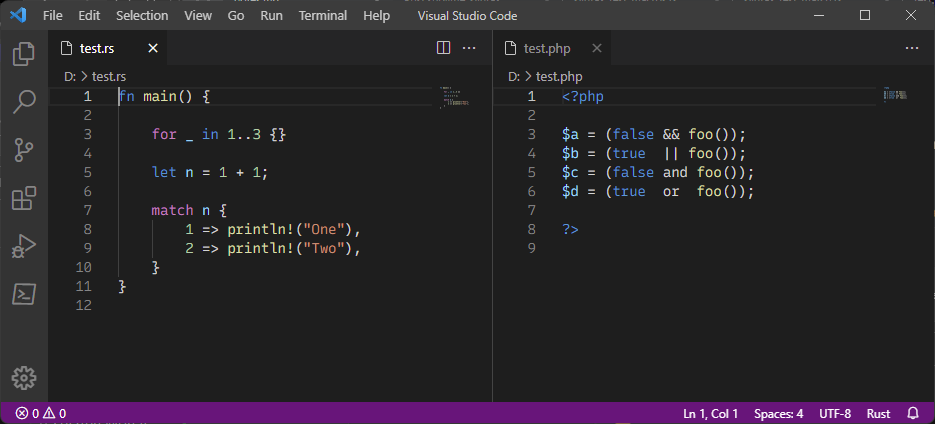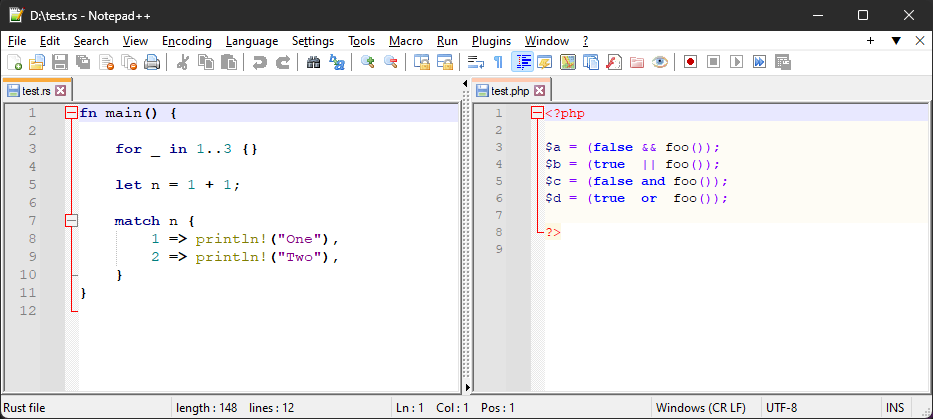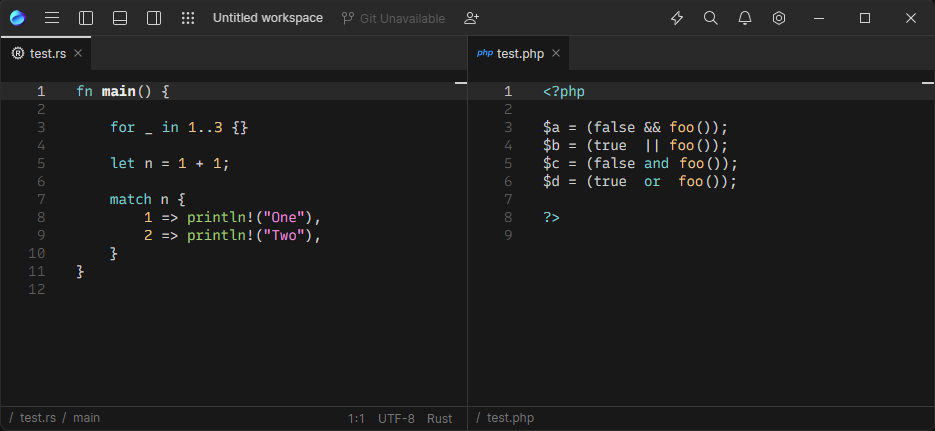I agree that this is a very conventional style and not some oddball request.
Ideally a ST Color Scheme author would be able to achieve this style (word operators coloured like keywords, symbol operators not coloured (or coloured separately)) with a nice declarative rule such as:
{
"scope": "keyword - keyword.operator , keyword.operator.word",
"foreground": "var(green)"
}(The previous discussion suggested a tweak to use meta.operator.word keyword.operator instead of keyword.operator.word. EDIT: and deathaxe's post below has even better suggestions)
But as things stand, a Color Scheme rule like the above is not sufficient in two ways:
-
It needs continuous language-specific additions tacked on to catch various word operators that slip through the net, e.g.
keyword.operator.logical.pythonto catchand,in,is,not,orin Python;keyword.operator.assignment.aliasto catchasin SQL, and so on. -
Given some Syntax Definitions, it's currently impossible to use a selector to target certain word operators distinctly from symbol operators. Some random examples:
notdoes not have distinct scope from&&in Ruby.remdoes not have a distinct scope from+in Erlang.asdoes not have a distinct scope from postfix!in TypeScript.
What happened?
This issue is supposed to track the status of the problem described in the rejected and now closed PR #2090, because finding and implementing a solution is still relevant to me. Probably most of the important aspects have already been discussed in the referenced PR, however, no final decision was taken.
tldr; it is currently impossible in Sublime Text color schemes to target operator keywords in a general way, and sometimes there doesn't even exist a workaround to highlight certain operator keywords, because they use the exact same scope as operator symbols.
There is also a rule for it in the scope naming guidelines, but it is not widely used in the default syntaxes, and the consensus seems to be that this rule should not be followed.
Finally, here are screenshots from a few other editors, with two code examples from Rust & PHP. Mostly (but not always) those editors are able to highlight operator keywords, but no operator symbols, and this is even the default style in their built-in themes (pay attention to
inkeyword in Rust, andand&orkeywords in PHP):Visual Studio Code
(Fails to highlight `and` & `or` keywords in PHP) Notepad++
JetBrains Fleet
Syntax highlighting on GitHub
```rust fn main() { for _ in 1..3 {} let n = 1 + 1; match n { 1 => println!("One"), 2 => println!("Two"), } } ``` (Fails to highlight `and` & `or` keywords in PHP) ```php ```